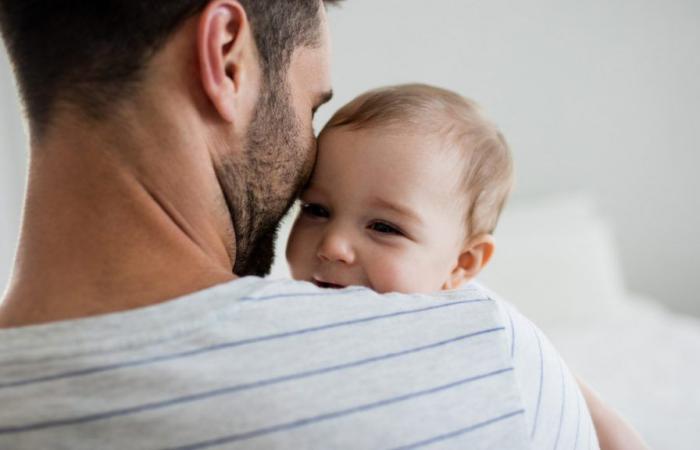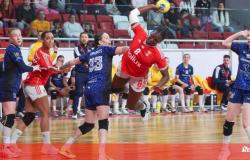MLong before they become mothers, girls are encouraged to care. In general, they are said to have a maternal instinct. But what about men?
“Although it is less discussed and analyzed”, Alberto Lopes, neuropsychologist/hypnotherapist at Clinicas Dr. Alberto Lopes, assures Lifestyle to the Minute that the parental instinct exists. However, “it manifests itself differently”, he says, explaining that “it is a more providing and protective instinct”.
Alberto Lopes considers that “men generally receive less direct encouragement to develop skills and interests related to childcare”. “Naturally, this cultural bias may influence how and how quickly the paternal instinct manifests itself.”
Let’s move on to the ‘elephant in the room’. Is it true that men have paternal instincts?
Although it is less discussed and analyzed, naturally yes.
Read Also: I was a father and I’m unhappy, why? Postpartum depression also affects men
And is it similar to the nursery?
It manifests itself differently. The paternal instinct is often influenced by social factors and personal experiences. It is a more providing and protective instinct.
Men generally receive less direct encouragement to develop childcare-related skills and interests. Naturally, this cultural bias can influence how and how quickly the paternal instinct manifests itself.
What does that mean?
It translates more into an innate desire to protect, educate and provide for their offspring. It reveals itself more subtly and gradually. Despite these nuances, paternal and maternal instincts complement each other. Nature has provided women with a stronger biological and emotional bond with their children, naturally reinforced by the gestation period and breastfeeding. This strong gestational bond not only strengthens a greater bond between mother and child, but also triggers a series of instinctive emotional and behavioral responses aimed at protecting, but above all, caring for the offspring. On the other hand, the paternal instinct, although not anchored in such obvious biological bases, manifests itself through the desire to protect, educate and provide for children. In other words, although both instincts share the common objective of caring for and protecting children, they differ in their origin and expression, reflecting the diversity of parental experiences.
© Alberto Lopes
Women are also, from childhood, encouraged to ‘practice’ motherhood, even through games that simulate caring for children.
It’s a fact. And this type of early socialization prepares women for maternal roles, reinforcing their natural biological inclination.
In men, this is no longer the case.
We know that men generally receive less direct encouragement to develop skills and interests related to childcare. Naturally, this cultural bias can influence how and how quickly the paternal instinct manifests itself.
Read Also: Children encouraged to swear on TikTok. “It’s worrying”
Do you still notice this discrepancy?
It is in transformation. Contemporary notions of parenting and masculinity evolve to embrace a more shared and integrated vision of the necessary sharing of parental tasks. The growing appreciation of active fatherhood is also changing this dynamic. Nowadays, more than in the past, women embrace a professional career similar to men. Therefore, this new shared vision of tasks and childcare is perfectly bridged, sometimes by one or the other.
Although males do not share the same prenatal physical connection that women have with their children, fathers also develop deep and meaningful emotional bonds with their children.
Is there a transformation in the male brain when men become fathers?
Yes, and it is, in fact, remarkable. Some studies indicate that men also have hormonal changes, including increases in prolactin levels and decreases in testosterone, which will influence paternal behavior, making them more receptive and affectionate towards their children. This change can be illustrated by the metamorphosis of a caterpillar into a butterfly. Just as the butterfly emerges with a new form and abilities to interact with the world, the new father awakens with renewed sensibilities and emotional capabilities to embark on the journey of parenthood. Furthermore, active parenting stimulates the development of brain areas related to empathy, recognition of family needs and emotional attachment.
Do you consider that men also share a kind of umbilical cord with their children?
Although males do not share the same prenatal physical connection that women have with their children, fathers also develop deep and meaningful emotional bonds with their children. Let’s call it ‘symbolic umbilical cord’, ‘bonds of affection’… But there are studies that indicate that these bonds can be strengthened through games and shared experiences, active care and with emotional investment in the well-being and development of children. This emotional bond, forged through care, attention and sharing of experiences, is essential for the child’s healthy emotional development and parental satisfaction.
Read Also: Do you miss the woman you were before becoming a mother? “It can be overwhelming”
Download our free App.
Eighth consecutive year Consumer Choice for Online Press and elected product of the year 2024.
* Study by e Netsonda, Nov. and ten. 2023 product of the year – pt.com
Download our free App.
Eighth consecutive year Consumer Choice for Online Press and elected product of the year 2024.
* Study by e Netsonda, Nov. and ten. 2023 product of the year – pt.com







